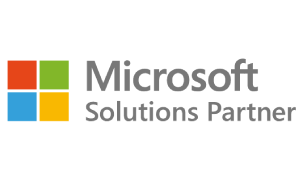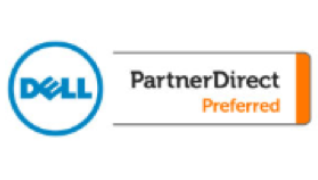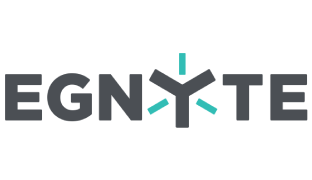
Whether you’re building a compliance program or refining existing controls, we support your team at every step.
Why choose Cantey Tech Consulting to help you uphold HIPAA compliance?
25+ Years
In business, delivering reliable IT expertise
<1.5 Minutes
Average time to answer support calls
350+ Companies
Businesses supported by tailored IT support
Build HIPAA-Ready PHI Protection Without Complexity
HIPAA compliance gaps can lead to significant legal and operational risks. Many healthcare organizations lack the resources to manage compliance at scale or keep up with updates.
We offer virtual information security officer (vISO) services to help you build and manage effective PHI protection strategies. We align your policies with HIPAA, structure them around your workflows, and guide your team on how to apply them.
We also help prepare for audits and support policy updates as your environment changes.
Stay Audit-Ready With Focused HIPAA Compliance Tracking
HIPAA requires proof of compliance. Without detailed logs of staff training, access control reviews, and incident response, you risk penalties during audits.
We centralize Governance, Risk, and Compliance (GRC) tracking to make HIPAA alignment manageable. You get structured logs for training, access activity, and incident response. Our tools help you stay organized and support easy evidence collection.
This approach reduces audit stress and strengthens internal accountability.
Enhance Your Policies Before Your Next Audit
Outdated or missing privacy policies can put your business at risk during a HIPAA audit. Teams often reuse templates or skip updates, which leaves critical compliance requirements unmet.
We create HIPAA-compliant policies and procedures tailored to your specific operations. Our team works with you to document the exact processes your staff must follow to protect patient data.
You’ll have clear documentation for audits and staff training. We help you simplify compliance tasks without cutting corners.
Hold Vendors Accountable to HIPAA Standards
If a vendor mishandles data or fails to implement security measures, your organization can still be held responsible. Many teams don’t have a transparent process for vetting vendors.
We help you identify, assess, and monitor vendor risk in accordance with HIPAA. We review agreements, verify business associate compliance, and help you close gaps. Our process includes templates for documentation and response tracking.
This helps reduce your risk of violations.
Secure PHI in The Cloud
Many systems that store or transmit PHI were not designed with HIPAA in mind. Misconfigurations or weak access controls can leave data exposed.
We review your cloud environment for HIPAA compliance. This includes encryption, access logging, system hardening, and backup practices. We help you align tools and settings with what regulators expect.
You’ll receive a practical roadmap that strikes a balance between compliance and usability. We focus on reducing risk while maintaining your systems’ efficiency.
Close Compliance Gaps Before Audits
After an assessment, teams often struggle to act on the results. Tasks pile up without clear ownership or timelines. Delays increase your risk and leave known issues exposed during audits.
We turn your assessment results into a step-by-step remediation plan. We prioritize actions, assign responsibilities, and assist your team in implementing any necessary changes.
You get practical support, not vague advice. We bring order to the process, allowing you to track progress and meet HIPAA requirements with confidence.
Maintaining HIPAA Compliance Shouldn’t Be Difficult
Let our team of experts help you meet regulatory standards so you can stay compliant.

HIPAA audits create pressure, especially when records are scattered or policies are outdated. Without a structured response plan, teams waste time scrambling to gather what’s needed.
We help you prepare for audits with a clear checklist and timeline. We organize documentation, run mock interviews, and review policies for accuracy. You’ll walk into the audit confident and ready.
We also support your team during the audit itself. With our help, you can present your compliance story clearly and reduce the risk of findings.

HIPAA compliance can weaken over time as staff members change roles or systems evolve. Unfortunately, many organizations discover gaps only when facing an audit or after a data security incident.
We provide continuous oversight to help you maintain compliance. We review access controls, audit logs, training records, and policy updates to ensure compliance. You receive clear direction on what needs attention and why it matters.
We also deliver regular reports with status updates and actionable steps. This helps you reduce risk, maintain accountability, and prepare for audits.

A weak incident response plan increases the damage of a breach. If your team isn’t prepared, the response will be slow and disorganized.
We assess your breach readiness by reviewing your response plan, escalation process, and disaster recovery procedures. We test your current approach, identify gaps, and show you precisely what needs to improve.
You receive a focused improvement plan that aligns your response efforts with HIPAA standards. This helps you act quickly, report accurately, and minimize the potential impact of an incident.
FAQs About HIPAA Compliance
You must follow HIPAA compliance rules if you handle protected health information (PHI) on behalf of a covered entity, even if you are not a healthcare organization.
This includes service providers like billing companies, IT vendors, and cloud storage providers.
If your business functions as a business associate under HIPAA, you are legally required to follow its privacy and security rules to protect sensitive health data.
HIPAA compliance requires meeting three main rules: the Privacy Rule, Security Rule, and Breach Notification Rule.
Covered entities and business associates must also train staff, manage risk, and maintain documentation to prove compliance.
Your business is a covered entity if it provides healthcare services, processes health insurance claims, or operates as a healthcare clearinghouse.
You are a business associate if you perform services for a covered entity that involve access to protected health information (PHI), such as IT support, billing, or data hosting.
Review your services and contracts. If you access PHI to support a covered entity, you likely qualify as a business associate.
HIPAA protects protected health information (PHI), which includes any data that can identify an individual and relates to their health status, healthcare services, or payment for care.
This covers names, birth dates, addresses, Social Security numbers, medical records, insurance details, and biometric identifiers. PHI may exist in physical records, electronic systems, or verbal communications.
If the information can link to a person and concerns their health, it is protected under HIPAA.
You can report a HIPAA violation by submitting a complaint to the U.S. Department of Health and Human Services Office for Civil Rights (OCR).
Use the online portal at ocrportal.hhs.gov, or mail or email your complaint. Include specific details like names, dates, and a clear description of the violation.
Complaints must be filed within 180 days of the incident unless there is good cause for a delay.





